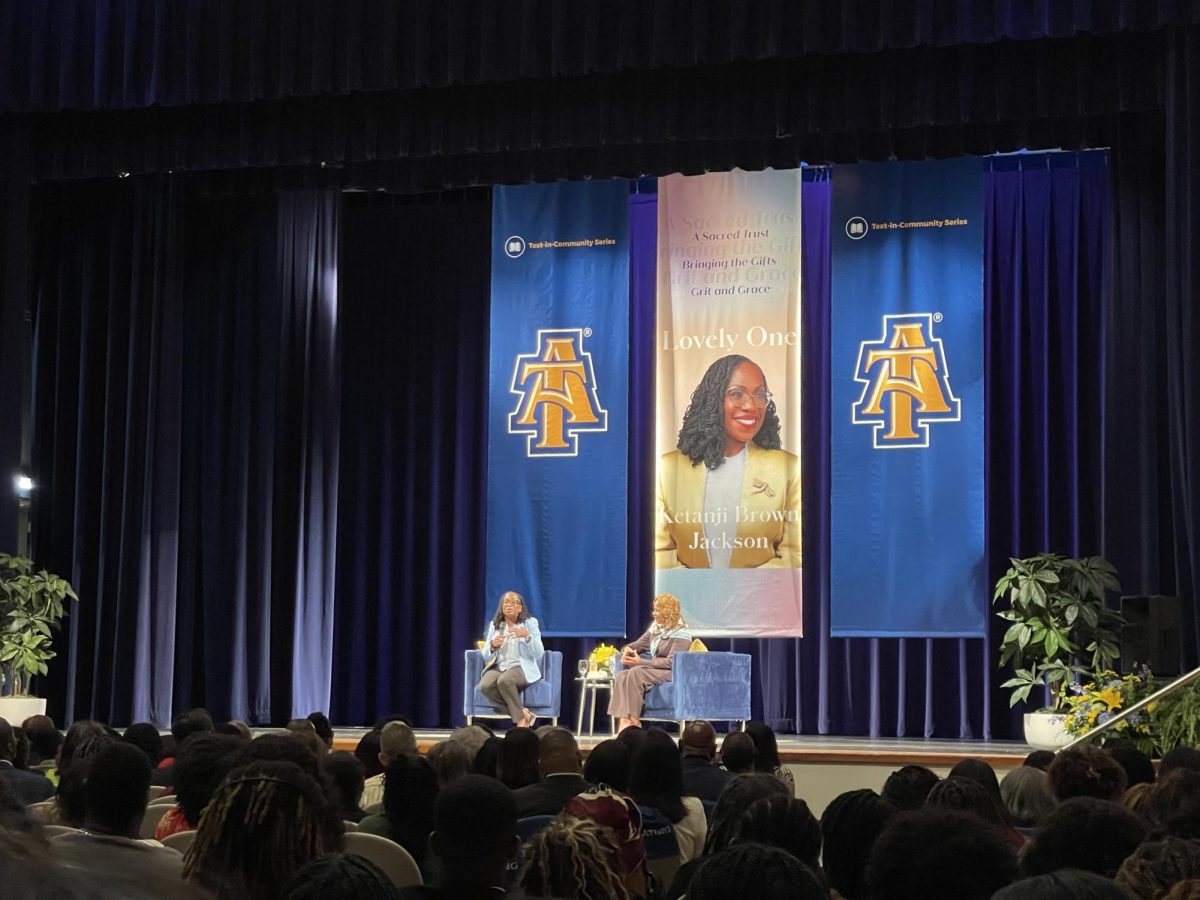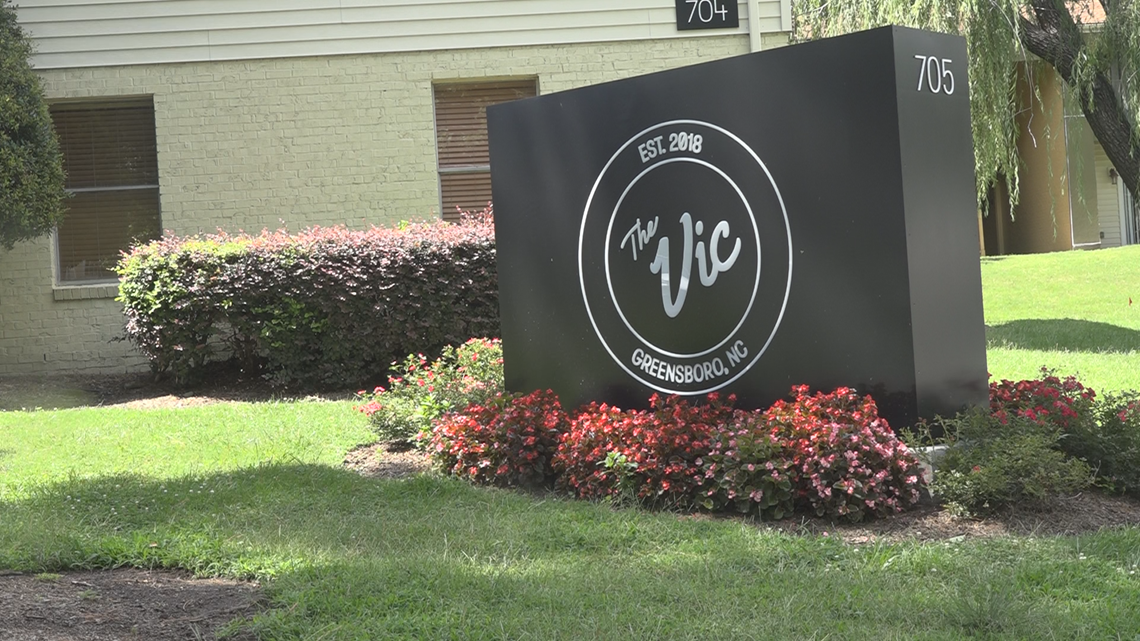Retirement is common in the American workforce, but when Dr. Claude Barnes retired, it had a strong impact and caused some controversy among students and faculty in the North Carolina A&T State University Political Science department.
Dr. Samuel A. Moseley, chairperson of the political science department, said that Dr. Barnes, who is known as a university celebrity for his involvement in the Dudley High School-N.C. A&T “Student Revolt” of 1969 and for his multiple achievements at A&T, had contacted him during Spring Break, stating that he would be leaving for personal reasons.
“It was a time where he looked at his own personal situation and decided that it would be best if he retire early. We were not anticipating it, we were as surprised as everyone else, but the department has to move on.”
Even though the main reasons for Barnes’ early retirement are unknown, the news may have shocked other faculty members but it was the students who felt the most betrayed.Alesia Diggs, a junior political science major from Raleigh, said she was informed of her professor’s retirement by another student while she was in the library.
“He just stopped showing up to class one day, we didn’t know what was going on,” said Diggs. “I don’t think he could just up and retire, so I thought something was up.”Diggs said that she met Barnes in Gibbs during his office hours one day to see if the class would be meeting for their next scheduled session.
“I asked him if we had class tomorrow and he was like ‘No, because I’m retired’,” Diggs said. “So I don’t understand how he could just not give us any warning or at least an e-mail saying what was going on. He just stopped showing up to class and he was pretty relaxed when I asked him. He was laughing and stuff.”
Dr. Moseley said that as the chairperson of the department, he had to make sure that students were in the position to obtain all the classes needed in their curriculum to graduate, so rather than have students simply drop the class he arranged for a new professor to take over all of the classes that Dr. Barnes formerly taught, but he also intended to make the transition as smooth as possible.
Dr. Dennis Rogers, a political science professor, and Dr. James Mayes, the director of the criminal justice program met with students to formulate a new syllabus prior to starting the class again to finish the remainder of the semester. Both Mayes and Rogers already had full workloads with their own classes, in addition to Mayes working as director of the criminal justice department, and Rogers working on a summer project that he has recently had to delay as a result of the extra classes he now has to instruct.
Since Dr. Rogers and Dr. Mayes have taken up the course in Barnes’ absence, some students have felt as though their new workload is more strenuous. Some students (most of whom preferred not to be named) stated that they felt it was unfair to be given extra work in the middle of the school year, rather than having it required at the start of the semester.
One class in particular that was originally taught by Dr. Barnes was Research Methods II, which is a major course for political science majors. With the new course load implemented by Dr. Rogers and Dr. Mayes, students are now required to complete a research design, give a presentation, and also take a final exam that was not previously required by Barnes.
“I feel like the [new] work load is unfair,” said Diggs. “They said that it would be ‘as painless as possible’ but it was like a major change for all of us. I mean we went to like a 20-page paper. If we procrastinated [fine], but now we only have like a month to work on it and we have other things to do, and it’s very unfair and they need to work with us some more. I don’t think they should cram a whole semester’s worth of stuff into one month just because of Dr. Barnes’ wrongdoing.”
C.J. Brinson, a junior political science major from Greensboro, was the only student to voice his opinions about the situation with Dr. Moseley.
“I like A&T and all, but there have been a lot of issues going on with my department that I am highly upset about,” said Brinson. “I don’t feel that my department has done a really good job with trying to appease my dissatisfaction.”
Brinson said that there were no e-mail notifications, no Blackboard announcements or anything to let students know what had happened for almost two weeks.
“It’s not the fact that he retired, but it’s how he retired. He didn’t give anyone a heads-up, nobody knew and I think it was very unprofessional. I feel like he quit on us, he left us out to dry, and I think that it’s wrong. And I also feel that the way the department has handled it is also very unprofessional.”
Moseley said that students were not informed immediately because of the time it took to find a professor willing to take up Barnes’ courses and because he was not willing to go forward with information that may have been wrong.
Brinson said that while he has nothing against Barnes and he describes him as “a great teacher who has done a lot for this campus,” but he believes that Barnes still acted unprofessionally and the way he left demeans a lot of what he had done at the university.
Brinson said that while Dr. Barnes’ teaching method was a bit more lax, he still felt that he learned a lot and simply altering the workload of the class to compensate for the professor’s absence is unfair.
“I think that what you will find here is that you can’t please all of the people all of the time,” Moseley said.
“You tend to encounter elements that are dissatisfied because of what this person personally thinks should happen. But we cannot allow students to dictate solely what standards are used for a particular course,” he said.
“We are concerned about standards. We are concerned that when these students leave that they have covered the proper information that will allow them to be competitive globally. We are aware of the global depression that is going on right now.
It would be catastrophic if we allow students to leave here without some of the basics. Most students, my seniors that I teach, don’t mind doing a paper that they formulated last semester, they don’t mind having a final exam. Students cannot expect to go anywhere where they are not expected to have standards.”
- Marcus Thompson





